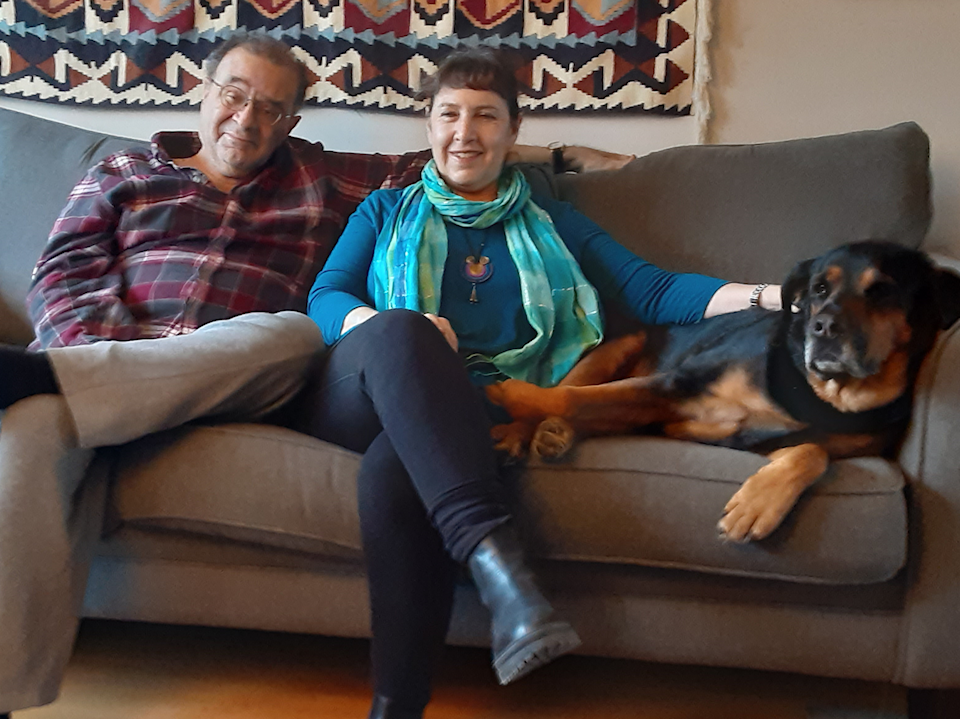A government ban prevents the rescue of overseas dogs from finding forever homes in Canada. It completely shut down international adoption from countries where stray dogs suffer the most.
Rabies is a major problem that should concern authorities, but I believe there should be ways in which countries can work together to overcome this ban.
An ex-faculty member from the Journalism program at Humber North, Salem Alaton, adopted a rescued dog from Cairo with the help of a “guy that turned out to be something fantastic.”
He said during COVID-19 in 2020, he had difficulty trying to adopt a dog locally. But he found a dog being offered for adoption online through a little non-profit adoption agency operated by a retired French school teacher. Alaton reached out to Dominique Rousselle, who runs Dogs without Collars Rescue.
Rousselle is something special. He has a heart that’s too big for his body. He funds the rescue with his pension funds. Any extra money he gets through adoption fees goes back to the Toronto-based non-profit.
And he's thorough in his examination of people adopting his rescues. He checked out Alaton to see if the retired professor was worthy and if the yard was good enough by visiting his home on a bone-chilling November day.
A few weeks later Rousselle brought together a group of dogs from Cairo and a group of expectant dog owners. They merged at the Egypt Air cargo area “and in one of the crates was this fellow who became our dog,” Alaton said.
“There were nine families that morning receiving a dog,” he said.
He said it became apparent Fito had been mistreated, apparently at the hands of a suspect breeder in the two years before his rescue. His nails were long, likely as if they had never been cut and he was skinny, Alaton said.
“But it was clear, you would pick up a broom in the kitchen to do something and he would cower and leave the room.”
The dog had come from a shelter that at the time had 1,500 dogs.
“Today, that shelter has 3,000 dogs which is frightening almost to contemplate,” Alaton said.
Fito was just one of the many stray animals suffering across the globe. He is now in good hands, made possible because of international adoption.

Rousselle used to bring 25 to 40 dogs to Canada after trips to countries including Thailand and Egypt and find them good families and homes to spend the rest of their lives comfortably.
He brought back 200 dogs to Toronto Humane Society about 10 years ago before establishing his non-profit where they bring dogs from Albania, Bahrain, Egypt and Thailand.
Lisa Moser, an activist with Dogs without Collars Rescue, said the legislation restricts their ability to rescue dogs from Egypt because their rescue specializes in German Shepherds.
Moser said they used to load them up as cargo and were allowed to bring six to eight dogs, but now they can only bring them if someone brings them as their personal pet.
“To me, it would be very, very easy for the government just to implement a bit more stringent regulations on bringing a dog in,” she said.
The federal government restricts “all commercial dogs” from countries considered high-risk for canine rabies. The list is rather long, including Africa, war-torn countries, and Asia.
Moser said some tests can be done to determine if a dog has rabies before it leaves a country, and their rescue does them anyway.
She said their rescue is thorough with the vetting process where many rescues are not but there needs to be more regulation and not a complete ban.
Moser said they brought in about 40 dogs just two months before the ban.
Rousselle said there is a lot of abuse and torture of dogs in Egypt because they train them to be guard dogs which involves violence towards them to make them aggressive.
His rescued dog Pascal, who was also brought in from Egypt, was a victim of physical violence. Rousselle has a video where a person beats Pascal with a large stick.
Pascal is now in good health despite the trauma he experienced and that is the change that people like Rouselle bring about.




